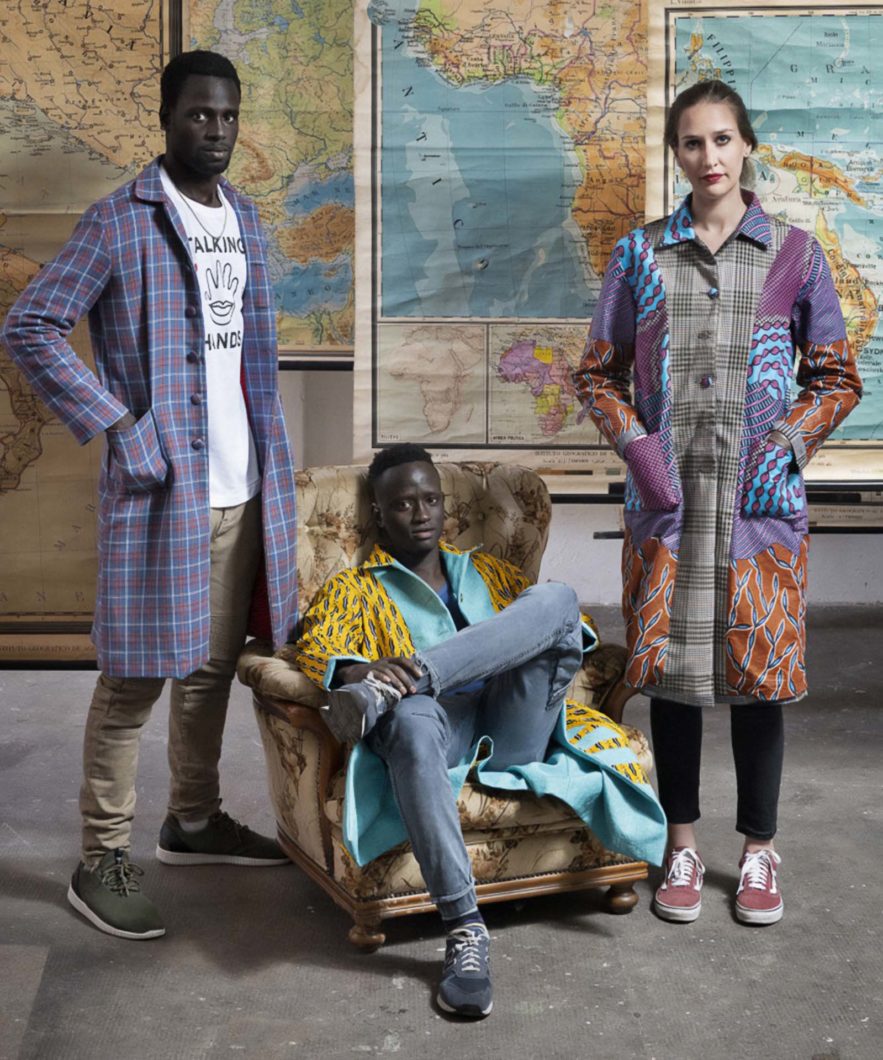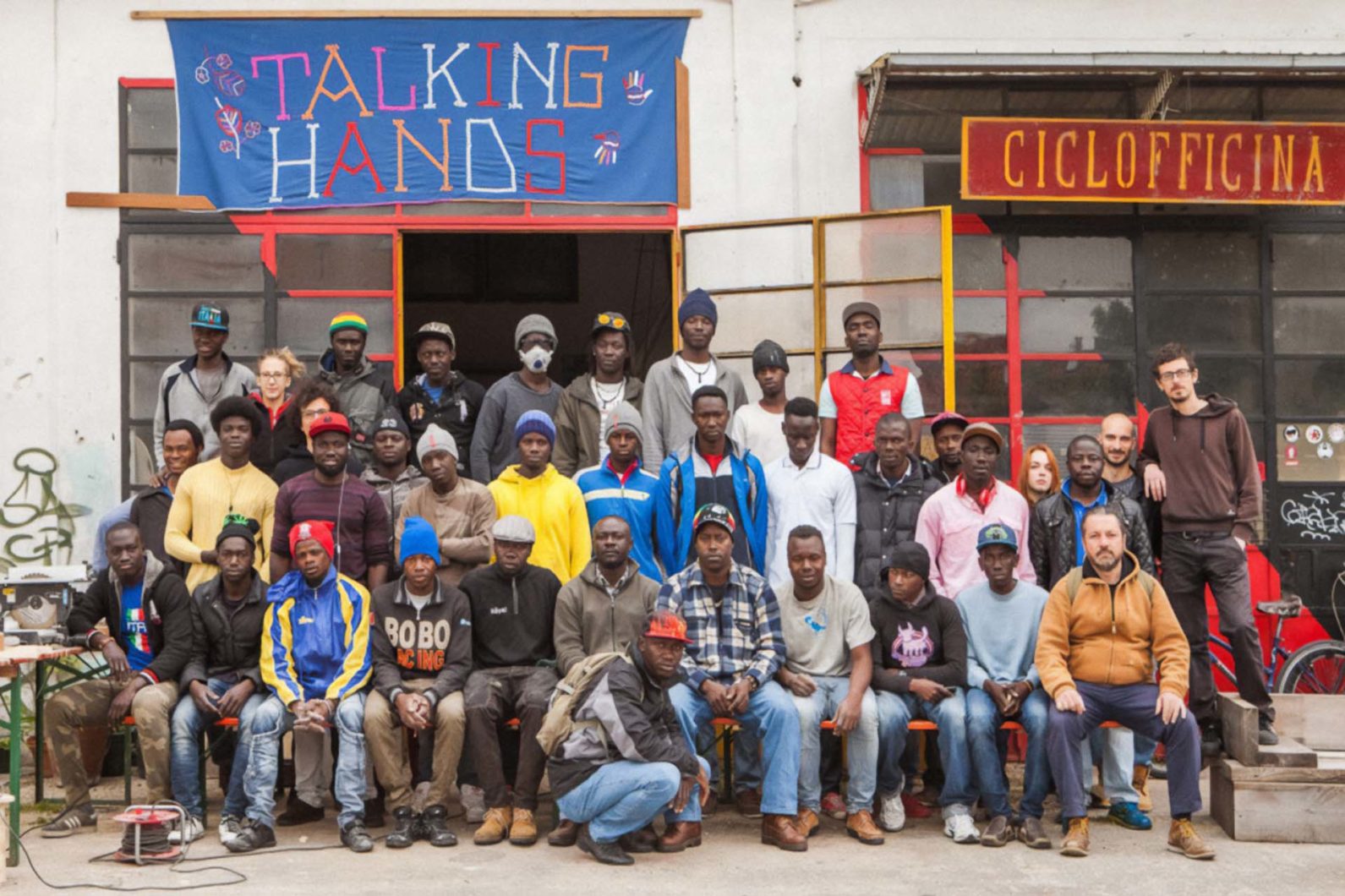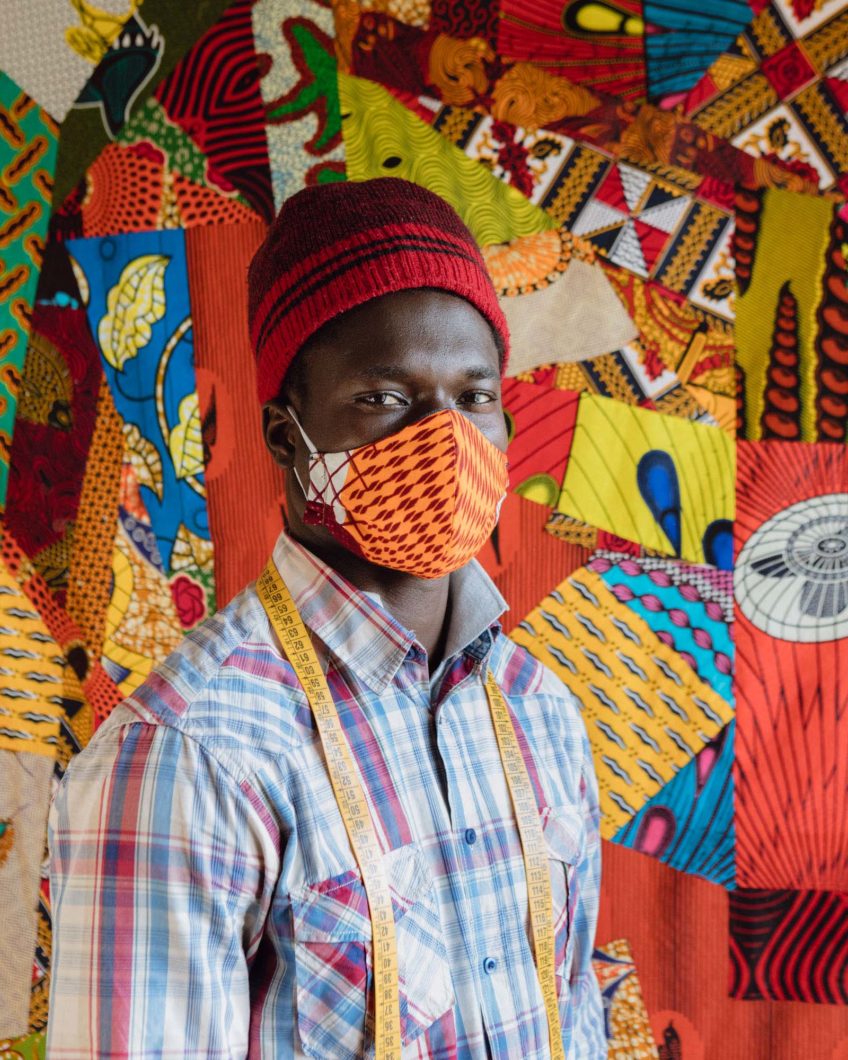Talking Hands
A self-managed design workshop where asylum seekers and refugees combine manual labour and storytelling



Initiator(s)
Fabrizio Urettini
Description
The project responds to the urgency that many asylum seekers and refugees have as soon as they touch a new country's soil: working and learning the language. The project, located in the former army barrack 'Caserma Piave' in Treviso, started as a grassroots initiative. After mapping the skills of a group of 25 migrants hosted by local centres for asylum seekers, they initiated a laboratory where they make and sell furniture, clothes and embroidery. Through the organisation of different free workshops in collaboration with local, national and international designers and artisans, the project promotes the professional development of the participants and it creates job opportunities. The products are sold during special events and the profit is partly distributed between the participants and re-invested within the project.
Goals
Due to the funding cuts operated by the government to the welcoming and protection system for refugees and asylum seekers, basic services such as literacy, mental health and individual support have significantly decreased. Through its activities, the project gives professional training, basic literacy as well as social support. The skills of the participants are valued as well through the collaboration with local artisan, national and international designers in supporting the production, from the design to the realization.
Beneficial outcomes
The core group is composed of 15 people who, in turn, are in charge of the workshops, and around 50 people who hang out in the space every day. Besides professional training, the project gives legal and healthcare support, and it provides free communal meals and some money for those in need.
Location
Italy
Users
Asylum seekers, refugees, migrants, designers, fashion designers, artisans, inhabitants of Treviso.
Maintained by
The project is completely self-sustainable thanks to the products’ sales. Operating as a circular economy, it collaborates in particular with Lanificio Paoletti, a local textile factory which provides fine fabric for the fashion produce. Sales make 500 to 700 EUR average: part of the money gets reinvested in materials for the workshop, part is used to purchase food for collective meals, and part is for those who need to send money back home for emergencies. Recently the project received support from Vitra Design Foundation (under the supervision of the Swiss authorities), which purpose is to promote the awarness for art, design and architecture.
Duration
2016 - ongoing
Category
Scientific
Pedagogical
Politics
Urban Development
Economy
Environment
Social






